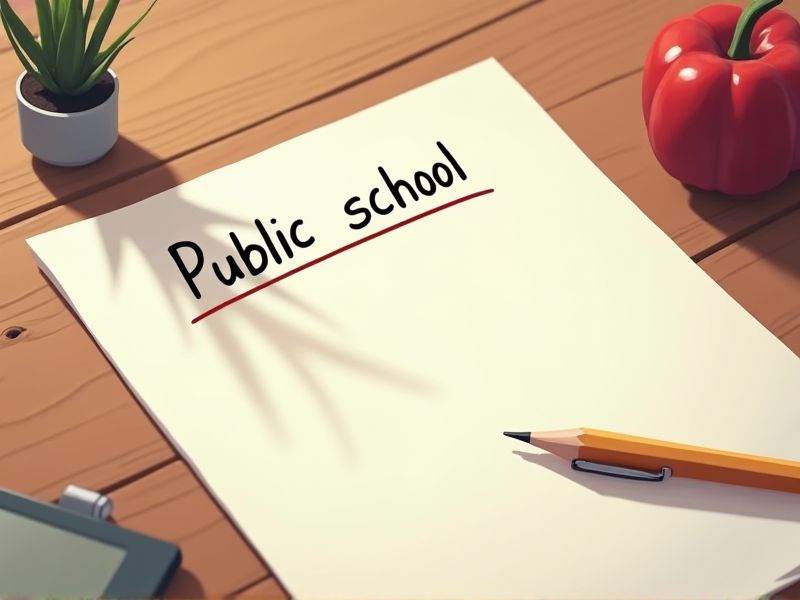
Public school teachers require specific certifications to ensure they have the necessary skills and knowledge to educate diverse student populations effectively. These certifications validate a teacher's ability to implement curriculum standards and classroom management strategies. They also serve as a safeguard, ensuring that educators possess the professional integrity and commitment demanded by public education systems. Here are some crucial certifications you may need to become a public school teacher.
State Teaching Certification
State teaching certification ensures teachers possess the necessary educational background and teaching skills, impacting student learning quality. Certification establishes a standard of professionalism and accountability, promoting public trust in the education system. It provides a framework for continuous professional development, aligning with evolving educational standards. It legally authorizes individuals to teach, safeguarding student welfare by verifying teacher qualifications.
Initial Teacher License
An Initial Teacher License ensures that educators have met the necessary qualifications and competencies required to educate students effectively. It acts as a regulatory measure, maintaining a standard of quality within the education system. Obtaining this license demonstrates that the teacher has successfully completed required education and training programs, confirming their capability to manage a classroom. Public schools use this licensing system to assure parents and communities that their children receive education from qualified professionals.
Professional Educator License
The Professional Educator License verifies that a teacher has met state-specific qualifications, ensuring a standardized level of education and expertise in public schools. It serves as a quality assurance measure, protecting students from unqualified teachers and enhancing the overall quality of education. The license also ensures educators continuously develop their skills, as renewal often requires ongoing professional development. Regulatory compliance and legal requirements mandate such licenses to uphold educational standards and accountability in the public schooling system.
Special Education Certification
Special Education Certification equips teachers with the skills to address diverse learning needs and implement individualized education plans. Without this certification, teachers may struggle to meet legal requirements under the Individuals with Disabilities Education Act (IDEA). It also promotes an inclusive classroom environment by ensuring all students, regardless of ability, receive appropriate support. Certified teachers are better prepared to collaborate with specialists and parents, enhancing educational outcomes for students with disabilities.
ESL Endorsement
Integrating ESL endorsement equips teachers with specialized skills to effectively address the diverse linguistic needs in classrooms increasingly populated by English Language Learners (ELLs). Research shows that students with access to educators trained in ESL strategies demonstrate improved language acquisition and academic performance. Schools benefit from having ESL-endorsed teachers as they help foster inclusive educational environments, which contributes to higher overall student success rates. In many regions, educational policies and funding prerequisites necessitate that teachers possess ESL endorsement to meet compliance standards for serving ELL populations.
Reading/Literacy Endorsement
Reading/literacy endorsement equips teachers with specialized strategies to address diverse learning needs in reading. Research shows that teachers with endorsements significantly improve students' literacy performance. Public schools face diverse classrooms, requiring teachers adept in differentiated instruction. The endorsement ensures educators can implement evidence-based practices to boost literacy rates.
Differentiated Instruction Certification
Differentiated Instruction Certification equips teachers with strategies to address diverse learning needs, enhancing student engagement and achievement. Public school classrooms often include students with varying abilities, backgrounds, and learning styles, necessitating tailored instructional approaches. Certified teachers can implement data-driven methods to modify content, process, and product, fostering an inclusive learning environment. The certification supports educators in meeting educational standards while accommodating individual student differences effectively.
Technology Integration Certification
Technology Integration Certification equips public school teachers with the skills to effectively incorporate digital tools into the curriculum, enhancing student engagement and learning outcomes. As educational environments increasingly utilize technology, certified teachers can better adapt to dynamic classroom settings and emerging tech trends. The certification helps ensure consistency in tech usage across schools, providing a standardized approach to digital education. Such certification also supports professional development, preparing teachers to meet modern educational demands.
Classroom Management Certification
Classroom management certification equips teachers with structured strategies to maintain order and enhance student engagement, leading to improved academic outcomes. Data suggests that teachers with formal training in classroom management techniques report decreased negative student behaviors and increased instructional time. Schools adopting these certifications experience a reduction in teacher stress and burnout, contributing to higher retention rates. Public school districts value such certifications as they align with broader educational standards and foster a supportive learning environment.
CPR and First Aid Certification
Having CPR and First Aid certification equips public school teachers with life-saving skills during medical emergencies. Schools often house large numbers of students, increasing the likelihood of incidents requiring immediate medical attention. Teachers trained in these areas can provide critical interventions, potentially reducing the severity of injuries or illnesses. This knowledge contributes to creating a safer school environment, enhancing the overall well-being and trust within the school community.
Summary
When you observe public school teachers obtaining certifications, their teaching efficacy significantly improves. Certified teachers often bring enhanced classroom management skills, which boosts student engagement and academic performance. Schools with more certified teachers tend to experience higher overall student success rates and increased graduation rates. Teacher certifications also contribute to a more positive learning environment, fostering student motivation and growth.
